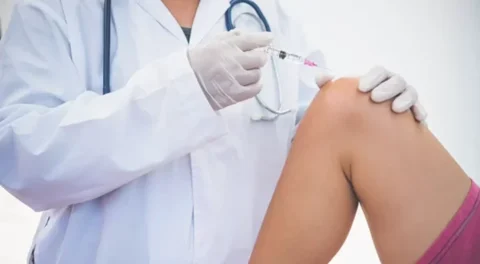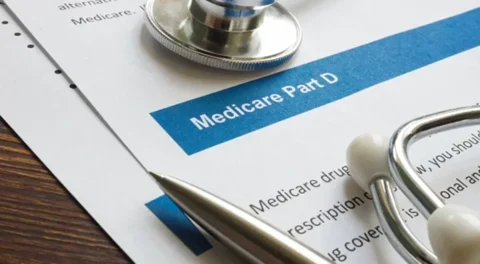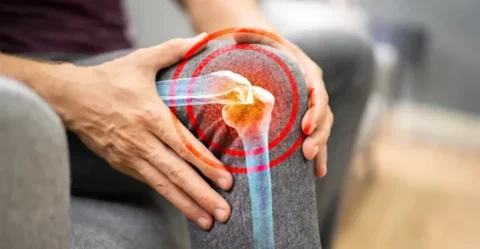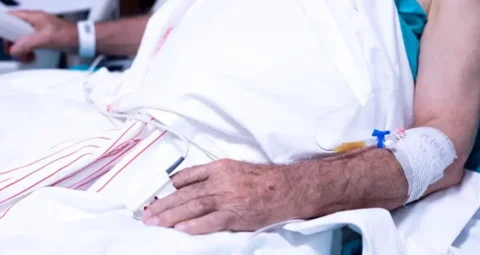Platelet-rich plasma or PRP therapy is one of the least invasive options for treating certain skin conditions and hair loss problems. The treatment uses platelets from your own blood and stimulates the body’s natural healing properties so there’s no risk of adverse reactions. However, to guarantee the effectiveness of the injections, there are some medications that you need to stop taking before your first PRP session.
So what types of drugs do you need to avoid before receiving PRP injection? Patients are advised to take a break from non-steroidal anti-inflammatory drugs, blood-thinning medications such as anticoagulants or antiplatelet drugs, and corticosteroid medications for at least 2 to 3 weeks prior to their PRP therapy. These medications may affect the platelet concentration and release of growth factors which can lessen the efficacy of the treatment.
Preparing For PRP: What Medications Should You Stop Taking Before The Injections?
PRP therapy stands out as a revolutionary treatment because it accelerates healing and tissue regeneration. It’s thanks to the presence of concentrated platelets, multiple healing proteins and growth factors that the injection is highly successful for repairing damaged tissue, creating new skin cells, and stimulating collagen growth.
However, certain medications can affect the quality of the platelets in the PRP serum and disrupt the overall healing process after the procedure. To avoid compromising the effects of the PRP treatment, you should avoid taking the following medications for a certain time period before your therapy:
1) Anti-inflammatory medications
Non-steroidal anti-inflammatory drugs are painkillers that work by blocking the release of specific chemicals that cause inflammation. Some of the popular NSAIDs that are used to relieve pain from muscle strains are aspirin, ibuprofen, and naproxen sodium. Individuals who want to get PRP therapy should stop any anti-inflammatory medications at least 1 week before their injections.
2) Blood thinners
If you’re diagnosed with a cardiovascular illness or heart disease, blood-thinning drugs can help ensure normal blood flow to the heart by inhibiting the development of clots. This medication comes in two types commonly known as anticoagulants which prevent blood clot formation by targeting certain proteins, and antiplatelets which target the platelet cells in your blood.
3) Corticosteroid medications
Corticosteroids such as prednisone, cortisone, and hydrocortisone are a kind of anti-inflammatory drugs. They essentially work by suppressing the immune system activity to prevent your body from attacking the healthy tissues and stopping chemicals that cause inflammation.
PRP therapy patients who are taking any oral or inhaled corticosteroid should inform their healthcare providers before stopping them in preparation for the treatment. As a precaution, these drugs should be discontinued at least 2 to 3 weeks before the PRP injections. Likewise, if you’re taking steroid injections, you should stop them at least one month before your procedure.
How These Medications Can Affect Your PRP Treatment
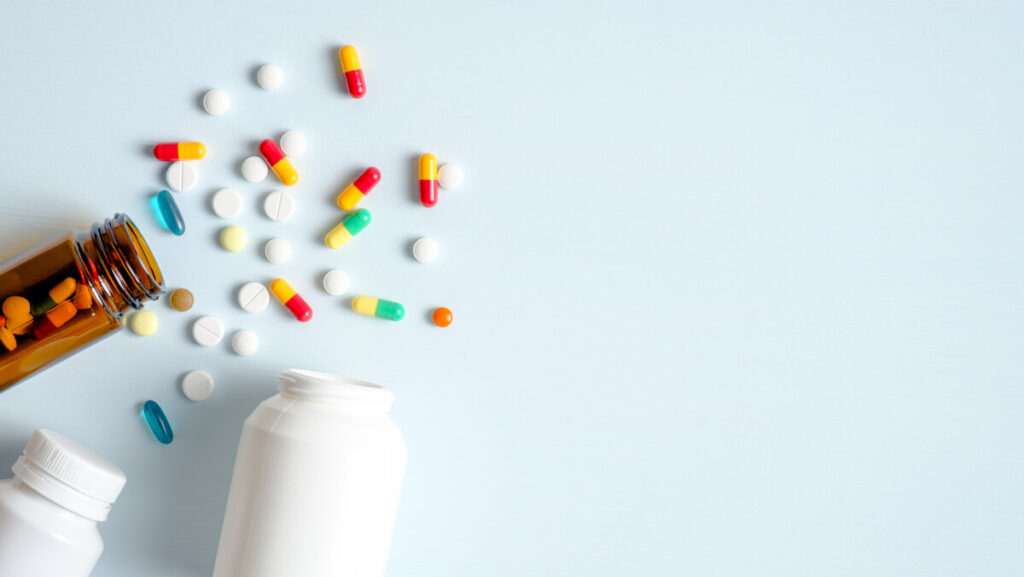
To better understand how some medications can affect your PRP treatment, it’s important to look at how the injections are prepared. The PRP serum contains two important components which are the plasma and platelets. To make the platelet-rich plasma injection, a provider will draw a blood sample and put it in a centrifuge machine to get the plasma liquid with high platelet concentration.
Several factors can affect the preparation and efficacy of PRP injection such as the speed of centrifugation and platelet count. NSAIDs, corticosteroids, and blood-thinning medications can also have specific effects on the healing and quality of the platelets in the PRP injection. Here’s why you should stop these drugs before your PRP session:
1) Disrupted activation of the platelets and growth factors
The mechanism of action of anti-inflammatory drugs is said to reduce the function and viability of platelets. As NSAIDs work to inhibit certain chemicals and enzymes, they are thought to prevent platelet activation which can decrease the amount of growth factors that are needed to stimulate healing and tissue regeneration. Patients who are on NSAIDs on the day of PRP preparation may not be able to get the maximum effects of the injections.
2) Prolonged healing process after the procedure
The platelets and growth factors in a PRP injection play an active role in healing the damaged cells and tissues. After receiving PRP, you will initially experience inflammation as part of the healing process. This inflammatory response may be triggered by the release of mediators from platelets that stimulate tissue repair and regeneration. Patients who are taking blood thinners prior to PRP injections may have an impaired healing function and affect the efficacy of the platelets.
Other Reminders You Need To Know Before Your PRP Therapy
Prior to the day of your appointment, your provider will give pre-procedure reminders to help you prepare for the treatment. Aside from avoiding certain medications, here are other instructions that need to be followed before getting PRP:
- Make sure to wash your hair on the day of getting PRP for hair loss treatment. Avoid putting on gels and other hair styling products that may affect the effects of the injections on the scalp
- Have a healthy breakfast and drink lots of water before going for your PRP treatment This will help manage dizziness and nausea when the blood is drawn during the procedure
- Stop drinking or smoking to avoid unwanted side effects after the injections
- Anticipate lightheadedness after the procedure and ask a friend or family member to drive you home for your safety
- Inform your provider about your medical history. As a precaution, you may not be suited for PRP if you have a low platelet count, anemia, abnormal platelet function, active infection, or bleeding disorders
What To Expect On The Day Of Your PRP Injections
It’s always a good idea to come in for a consultation to have a better understanding of what happens during a PRP procedure. The PRP therapy itself is straightforward and can take about 45 minutes to finish depending on the number of areas being treated. Here’s an overview of the PRP procedure:
- The process begins by drawing a blood sample and it’s usually taken from the arm.
- The provider will place the sample in a tube and spin it in a centrifuge machine to separate platelets from other blood cells. The centrifugation process can take about 15 minutes.
- The concentrated platelet-rich serum is then prepared for injection to the specific treatment sites.
- The injections are quick and most patients can comfortably return to their daily activity with almost no major side effects.
- For at least 2 weeks after the injections, patients are still advised to avoid anti-inflammatory medications and blood thinners to allow the injected sites to heal.
PEP Factor: A Convenient and Injection-Free Alternative Treatment
Although PRP therapy is widely administered today for safely treating various sports injuries, chronic tendon injuries, and hair loss problems, the idea of having blood taken can still be a little intimidating to some patients. In these cases, PEP Factor can be a great alternative that doesn’t require any extensive preparation and injection process.
PEP Factor is a solution that contains a blend of proteins and fibroblast growth factors that can stimulate collagen regrowth and tissue healing to improve the appearance of skin and scalp health. It’s available in topical serum formulation so it doesn’t need to be injected.
Shop PEP Factor Products At FACE Med Store
While PRP injections have many proven benefits for medical and cosmetic conditions, not all people may be qualified for the treatment especially if they’re taking certain medications. Fortunately, the use of PEP Factor products is more convenient and its ingredients may not interfere with other supplements that you’re currently taking.
FACE Med Store is a trusted provider of quality medical tools and supplies that many aesthetic and wellness practices can buy at affordable prices. We can help businesses grow their services with our offerings of tools for advanced treatments like PEP Factor. Call us today to know more about what medical and beauty supplies we have in stock and how we can help your operations.

